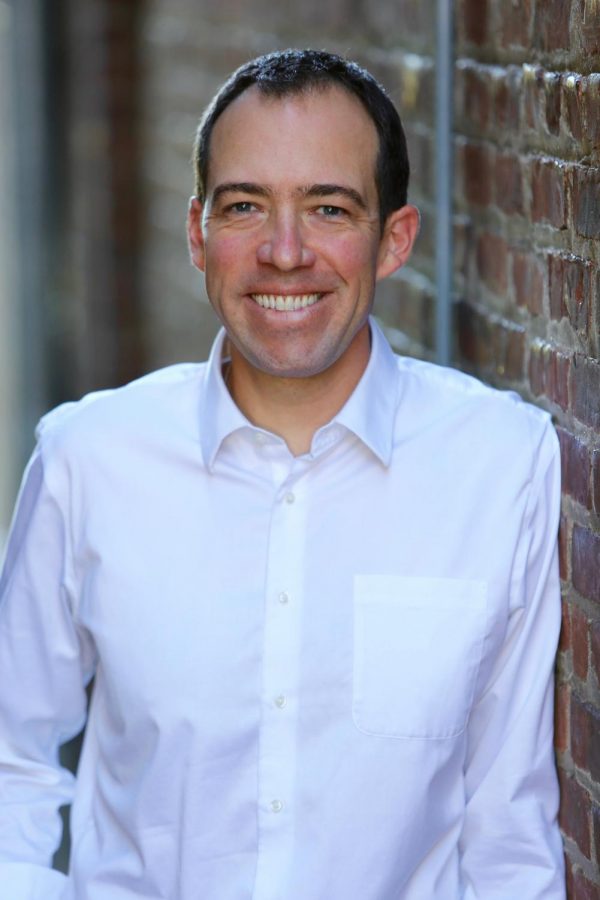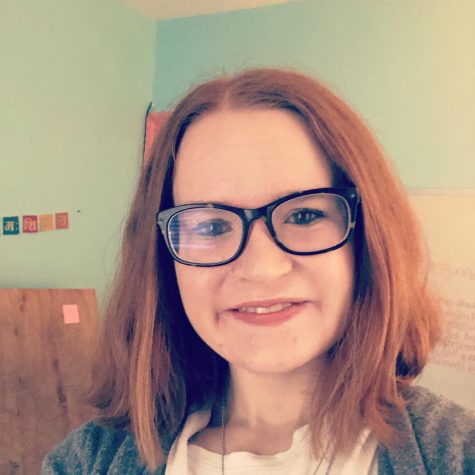Professor Michael Peppard Balances Teaching, Homeschooling and Music-Making During COVID-19
COURTESY OF MICHAEL PEPPARD
Professor Michael Peppard has found that managing his school time, family time and personal time a challenge under quarantine, but not one too large to overcome.
April 14, 2020
Just like the students at Fordham University, professors, too, are trying to adapt to online learning and the unusual schedules of their daily lives. Michael Peppard, a theology professor at Rose Hill who lives 45 minutes outside of the city, makes time for teaching online, taking care of his family and recording music, one of his favorite hobbies.
The Observer (O): How has the transition to online teaching been so far?
Michael Peppard (MP): The transition was very difficult for the first couple weeks. I didn’t know what was going to be best for the students and sustainable for me. So I sent out a survey of options and then rebuilt the course based on the responses. And at that time, all of the rest of life was thrown into chaos too! In addition to my regular teaching and research, I was also in the midst of coordinating recruitment visits for 14 admitted Ph.D. students during March, which became extremely challenging. And then of course there came the school cancelations for kids…
But once stabilized, the online teaching has been a mix. Generally I don’t like screens. I got into this because I love people and books and ideas. One positive for me has been that the Zoom classes — and especially individual advising meetings during registration week — have given me new perspectives and compassion about the diversity of my students’ lives. The on-campus classroom context can create a facade of sameness, which is often a good thing, as it encourages professors to treat everyone equally and fairly. But it’s also beneficial to see behind that, to get a fleeting glimpse into the variety of social situations in which my students live. I’ll carry that forward to the life after quarantine.
O: How has your family been affected by this pandemic?
MP: It’s every emotion all at once. My wife’s successful fashion business of many years is in critical danger. My mom is alone with dementia in a nursing home 2,000 miles away. My daughter and stepsons are stir crazy. The older one can manage online schooling fine, but the younger two basically need full-time supervision. It’s utterly unsustainable and the difficulty is exacerbated by small square footage. Quarantine parenting is like regular parenting except each part is amplified: the worst parts are more difficult, and the best parts seem more powerful too.
O: How has your normal work week changed?
MP: Does a work week still exist? Does time still exist? What day is it now? Seriously, for my undergrads, I moved to 1 synchronous meeting (kept mostly the same) and 1 asynchronous meeting, which has prerecorded material by me, prerecorded student presentations, and about half the reading that was originally assigned with a short writing prompt. I’d say I’m able to work approximately one-fourth of the hours that I normally do, though many of those are in bursts due to family obligations.
O: How do you divide your time between supervising college students’ classes and supervising kids’ classes?
MP: On a day where we’re doing all of it, we have a quick discussion of who has immovable time-sensitive meetings or deadlines for the grown-ups and kids, and then we prioritize those — usually we don’t get anything done beyond those, when you factor in making and cleaning up after 3 meals and managing the youngest one who can’t sit still.
O: What are your hobbies/what kinds of activities if any have you been doing to help relieve stress during these challenging times?
MP: The other day I made a list of “what I need to get through this,” to have a reference point of how I can stay healthy and sane. It includes some time outside every day, some time alone every day, making music of some kind every day (finally recording those demos, ha ha), being careful to limit alcohol consumption (just being honest here, it’s awfully tempting during this period), and cooking healthy dinner for all each night. To this, we’ve added a puzzle corner inside and longer, more vigorous bike rides when we can.
O: What kind of music demonstrations have you been working on?
MP:I bought a digital 8-track recorder and am recording guitar, drums, piano, and vocal parts at home for songs I’ve written over the years, along with some new material for my band (we do a mix of rock and alt-country).
O: Do you have any advice for students right now?
MP: It really depends on the student. I know some are feeling isolated and very alone, while others feel trapped in a place with way too many people. And that’s not even to mention those who are sick themselves or caring for a sick relative. I guess I’d encourage people not to try to “keep things normal” during an unprecedented time in our lives. As psychologist Viktor Frankl once said, “An abnormal reaction to an abnormal situation is normal behavior.”
But I’d also suggest finding a couple “normal” touchstones each day, some check-in reminders of the life before and beyond quarantine. If you need to care for others, be present with them, do that work of mercy, and don’t worry about your school work this month. But if you do not need to be a caregiver, maybe use some of this time to step off the conveyor belt of your educational track, step to the side for a bit, and see where your mind takes you. What intellectual or artistic passions had you forgotten? Did you used to write? Draw? Build things? Tinker? Who are you intellectually when the world slows down, and the curriculum is no longer provided to you?
This interview has been edited for length and clarity.














